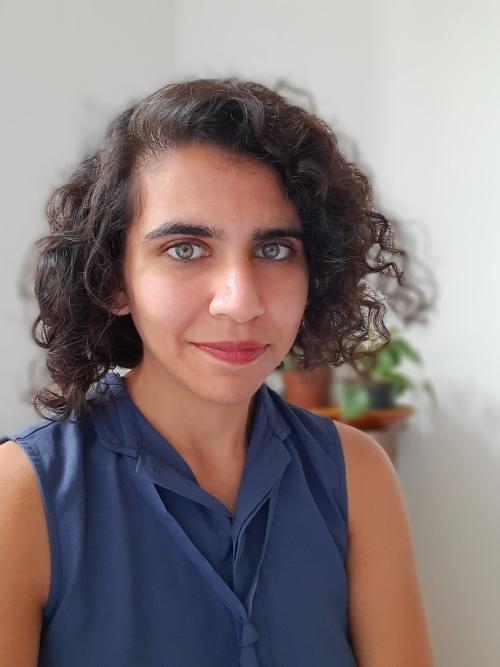You are here :
- EUTOPIA website
- Home
- Research & Innovation
- Fellowship
- SIF - Post-Doctoral Fellowships
Akshyeta Suryanarayan, Pompeu Fabra University Barcelona

Curriculum Vitae
Akshyeta Suryanarayan, PhD
- Education
Akshyeta obtained her first degree in Classical and Near Eastern Archaeology and Anthropology from Bryn Mawr College (USA) in 2013.
She completed her MPhil (2015) and PhD (2020) in Archaeology from the University of Cambridge (UK).
Her PhD thesis conducted the first systematic investigation of lipid residues from pottery from rural and urban sites of the Indus Civilisation located in NW India (Haryana and Uttar Pradesh) to characterize rural and urban food practices and how they changed in the face of cultural and climatic change.
- Experience
She was awarded a Fyseen Foundation fellowship in 2020 to conduct independent postdoctoral research on lipid residues in imported and locally-produced pottery from the Neolithic and Bronze Age in SE Arabia at CEPAM, UMR 7264 CNRS, Université Côte d'Azur in Nice (France) to understand the movement, exchange and use of organic products in pottery in the Arabian Peninsula.
Akshyeta's research focuses on exploring foodways and vessel usage practices of ancient communities at the interface of socio-cultural and environmental transitions, with a particular interest in Bronze Age South Asia (Indus Civilisation) and the Arabian Peninsula (SE Arabia). She applies biomolecular techniques, specifically ceramic lipid residue analysis to understand ancient subsistence practices and human-environment interactions.
Akshyeta is also interested in heritage and museum practices and the representation of historical narratives and contemporary communities within museums with a decolonial focus. She conducted research on the South Asian collections at the Museum of Archaeology and Anthropology (MAA) in Cambridge for a digital installation for the University of Cambridge Museums, and co-created the ‘Untold Histories’ tours at MAA in 2018-19, which received coverage in the New York Times and won an award for Inclusive Practice in Teaching.
Research Project:
Protein and Lipid Analysis of Ancient Ceramics in South Asia
Investigating ancient foodways provides a foundation for devising strategies and interventions for the future of sustainable food production. This project aims to extend the historical depth of our understanding of food production by investigating the culinary practices in Sindh, one of the main regions of South Asia's first urban civilization, the Indus Civilisation (3000-1300 B.C), through the application of two distinct techniques in biomolecular archaeology: ceramic lipid and proteomic analysis.
Lipid residue analysis of ancient pottery enables the characterization of fats, oils, and waxes absorbed into ceramic vessels during the preparation of food, while proteomic analysis detects ancient proteins preserved on vessels, providing increased taxonomic- and tissue-specificity of ingredients prepared in vessels. This project will be the first to attempt a combination of these techniques to study ancient foodways in South Asia. The project will be based at CaSEs, Universitat Pompeu Fabra (UPF), Barcelona. Training in proteomics will be obtained at the Proteomics Unit (UPF), while the secondment institutions will be University of Ljubljana (UL), Slovenia, and Cultures et Environnements-Préhistoire, Antiquité, Moyen Âge (CEPAM), UMR 7264 CNRS, Université Côte d'Azur in Nice, France where the lipid residue analysis will take place.
The specific aims of the project are to characterize the nature and variation of dietary practices at Indus Civilisation sites in Sindh, Pakistan, and to investigate the evolution of culinary practices during the development of urbanism and across a period of increasing aridity and environmental changes. A deeper understanding of the heritage of food in South Asia, combined with the interdisciplinary work on ancient landscape management and change already taking place at CaSEs, will give key insight into traditional knowledge and sustainable strategies for increasing resilience against rising aridity and climate change in South Asia as well as other semi-arid and arid regions of the world.


